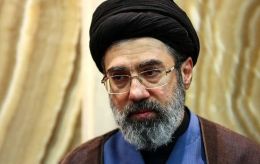Perfect storm for Zelenskyy: How the Parliament was nearly dissolved and whether elections will take place during the war
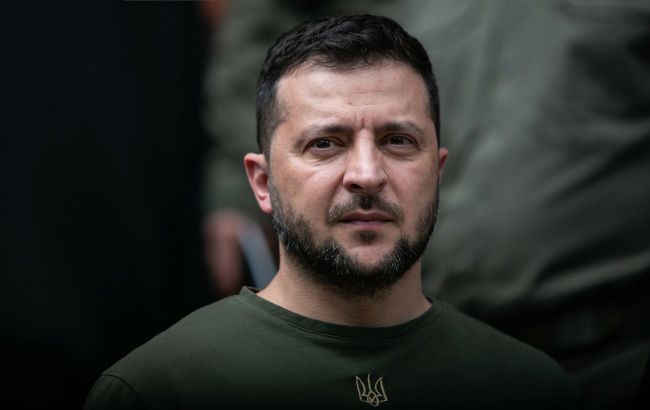 Photo: Volodymyr Zelenskyy (Getty Images)
Photo: Volodymyr Zelenskyy (Getty Images)
About personnel issues in Zelenskyy's team, the pressure of the West, the fight against corruption, and also about how he almost dissolved the Verkhovna Rada (Ukraine's Parliament) in the summer and whether there will be elections next spring - in detail in the material by RBC-Ukraine.
Last week, there was a lot of buzz in the corridors of power due to a survey conducted by the Democratic Initiatives Foundation in collaboration with the Kyiv International Institute of Sociology (KIIS). In this survey, 78% of respondents agreed that the President of Ukraine bears direct responsibility for corruption in the government and military administrations.
The next day, sociologists from KIIS clarified that "responsible" does not mean "involved" and that Volodymyr Zelenskyy still maintains a very high level of support among the population. The average Ukrainians, for the most part, do not have a deep understanding of who is responsible for what in the government.
"How did you react to these figures overall? Did they make you nervous?" RBC-Ukraine asked a person in the president's circle.
"Did you notice that the survey was conducted with the funding of our Western partners? And the results were deliberately held and published on the eve of the president's trip to the USA. They are 'training' us, sending signals that could create the perfect storm. In the morning, a new opinion poll, at lunchtime, a new investigation into the purchase of oranges or pants at inflated prices, and in the evening, a public lecture on the importance of holding elections as a mandatory element of democracy," the source replied.
"And will the government be swayed by this?"
"The president does not yield to external pressure," he said.
The "perfect storm" is a situation in which various negative external factors compound each other, intensifying the overall negative effect. This is a quite plausible scenario that Ukraine and the ruling team in particular may face in the near future, and Western pressure is not the only or even the most important factor here.
Of course, this scenario is not the only one. If we recall the situation at the end of February last year, the objective picture looked much worse for Ukraine, with numerous Western predictions of our country's collapse within a day or two weeks. However, Ukraine not only survived but also took the initiative in the fight against Russian aggressors. But there may be new difficult times ahead.
Personnel issues
The new year of 2023 in official rhetoric was often announced as the year of victory. It is now evident that it will not turn out that way. In the corridors of power, conversations about the upcoming spring-summer offensive of 2024 are becoming more frequent. It is quite probable that this will not be the last one either. The prolongation of the war is a fact that more and more ordinary Ukrainians are coming to terms with. According to a June survey by KIIS, a relative majority of Ukrainians - 42%, believed that the war would last more than a year. The current course of the counteroffensive may only adjust this figure upwards.
Fall has traditionally been a challenging season for any Ukrainian government, even in pre-war times. Now the situation is further complicated by significant problems in domestic policy, Russian aggression, and the risks of losing current levels of support from the West.
The most acute internal issue is undoubtedly the personnel issue, as acknowledged by sources in the government. The length of the personnel bench has never been a strong point of the current ruling team, and in the fifth year of President Zelenskyy's term, the personnel problem has become critical.
This is evident from how difficult it is to carry out personnel rotations at the highest levels of power, and how a small number of managers who enjoy the president's trust take on new responsibilities or simply shift to vacant positions.
The saga of the change of defense minister has been reported multiple times by RBC-Ukraine. From the outside, it appears that a top official who was involved in several high-profile scandals and garnered a lot of negative attention was forced to resign. This fits into the overall picture of domestic politics during a full-scale war: if last year Zelenskyy and his team could ignore external criticism, overshadowing it with victories that were clear to society (the liberation of Kharkiv and Kherson, candidate status in the EU, receiving Himars and other advanced weaponry), now there are no such obvious victories. The Teflon effect has diminished, and criticism has to be addressed.
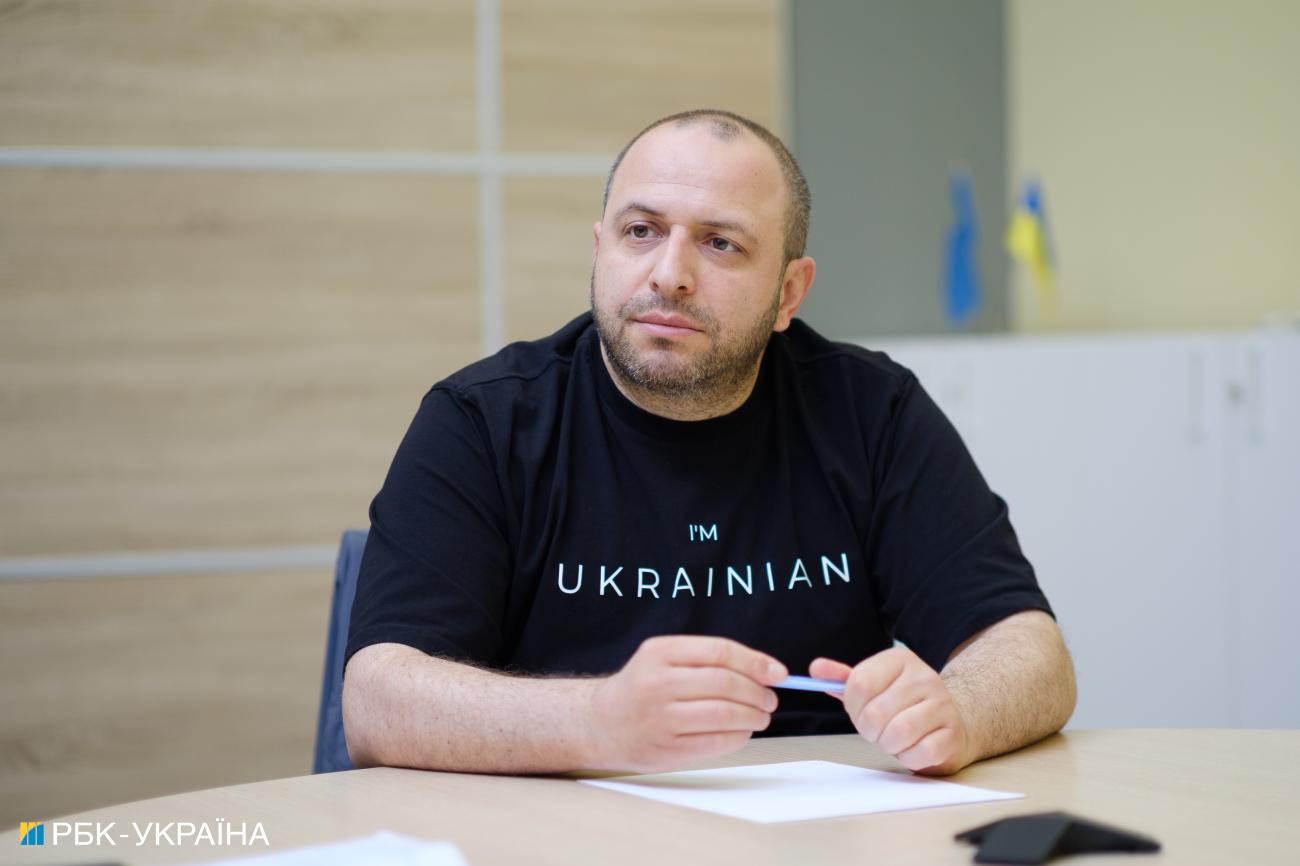
Minister of Defense Rustem Umerov (Photo: Vitalii Nosach / RBC-Ukraine)
However, some insiders in the government paint a different picture.
"The decision was made long ago, and it has nothing to do with these stories about jackets and the like. And, in general, it always happens this way: questions about a person start to accumulate long before anything enters the media field. But if, at some point, they cannot find a solution to the situation around the table, it gets postponed. That's how it was in the case of Reznikov until they found a suitable option with Umerov," says a source.
According to him, Reznikov did an excellent job in the initial stages of the war when the main task was to get new classes of weapons from the West. Now Ukraine has already received or will receive in the near future everything the West can provide. In the new phase, the focus will be on the managerial qualities of the Minister of Defense, and Umerov is considered by various RBC-Ukraine sources to be a truly strong manager.
Among the issues he needs to address (in addition to reforming defense procurement) is the information policy regarding the army's actions in front of the Ukrainian society. The current situation is constantly criticized by ordinary Ukrainians on social media, journalists, and military personnel, all of whom are dissatisfied with it, even within the government. The recent story of the village of Andriivka in the Bakhmut direction, which Ukrainian soldiers were said to have liberated – and later it turned out that this information was premature – is a vivid illustration.
The new Minister of Defense, Umerov, is one of those who are currently part of President Zelenskyy's inner circle. In addition to the head of the Presidential Office, Andriy Yermak, sources of RBC-Ukraine also include Prime Minister Denys Shmyhal, Deputy Prime Ministers Mykhailo Fedorov and Oleksandr Kubrakov, Speaker of the Parliament Ruslan Stefanchuk, his first deputy Oleksandr Korniienko, the head of the "Servant of the People" faction Davyd Arakhamia, Valerii Zaluzhnyi, the commander of the Ground Forces Oleksandr Syrskyi, the head of the Main Intelligence Directorate Kyrylo Budanov, the head of the Security Service Vasyl Maliuk.
Of course, this circle of close individuals is not limited to these names. Some RBC-Ukraine sources also mentioned the First Deputy Prime Minister and the Minister of the Economy, Yulia Svyrydenko. Among the officials of the Presidential Office, in addition to its head, the closest to the president is Oleh Tatarov – primarily for his diligence, which so far has managed to overshadow all the negative aspects of Tatarov's biography and criticism from civil society.
The narrowness of the circle of close individuals leads to the necessity of reshuffling the same few cards when addressing any personnel issues. For example, when the idea of creating a separate position of deputy prime minister for security arose, it was originally intended for Maliuk, thus exposing the Security Service (however, this idea was later abandoned).

Volodymyr Zelenskyy speaks in the Verkhovna Rada (Photo: president.gov.ua)
A telling story - the position of Minister of Culture and Information Policy remains vacant to this day. It seemed that they had found a suitable candidate for this position, Yulia Fediv, but an active information campaign immediately began against her.
"In reality, everyone is already tired of constant media attacks when everyone is tearing each other apart. Besides, as in the case of Fediv, they tear their own...," says a source in parliament.
As a result, the idea arose to give up the Ministry of Culture, transfer the function of information policy to the advisor of the head of the Presidential Office, Mykhailo Podoliak, and distribute the "cultural" functions among other state institutions. According to the latest information, Fediv is still planned to be appointed to the position, but a lot can change before her candidacy reaches the session hall. In general, the situation where some government bodies can be liquidated (at least, they are considering it) simply because they cannot find a leader for it is very indicative.
The other side of the coin is the lack of a flow of eager candidates for top positions, usually among those who can pass at least the initial selection. Firstly, any new top official will now inherently find themselves in a situation where the number of tasks in their area is enormous, and resources are extremely limited, to the point that the official will have to find themself (in the case of the Ministry of Culture, attract Western grant funding).
Secondly, any top official finds themselves at the center of attention of anti-corruption structures and other law enforcement agencies. And for the actions of their subordinates (even if they are completely uninvolved), they will have to pay with their reputation at the very least, and even with criminal cases. In the commercial sector, one of the theoretically main human resources for the government, there are numerous risks, but overall, it is calmer there.
In the absence of visible victories on the front or in international affairs, the fight against corruption is precisely a potential source of good news for the weary population. In recent months, there has been noticeable competition between "our" (Security Service, Office of the Prosecutor General) and "their" (Anti-Corruption Bureau, Anti-Corruption Prosecutor's Office) law enforcement agencies to expose the next corruption case. In high-profile cases, like the Ihor Kolomoisky case (the most "our" oligarch of the common people's perception), such competition is particularly evident.
Apart from Kolomoisky, most corruption cases are limited to parliamentary affairs. Truly significant "our" ones have not been "caught up with" yet, but of course, the situation can change, especially under pressure from Western friends of Ukraine. As RBC-Ukraine has already reported, the effective fight against corruption is the main task that the West is currently setting for Zelenskyy's team.
"Right now, everyone in the team is exhausted, and there is a general dissatisfaction. By the way, this is a normal story for the end of every political cycle. If you remember, Poroshenko had the same experience," says a source in the presidential circle.
Election task
The universal recipe for political reset in any democratic country is elections. Ukraine is already missing one calendar date – the parliamentary elections this October – due to the war. The second date, the presidential elections next spring, is rapidly approaching.
According to several sources of RBC-Ukraine, President Zelenskyy was close to dissolving the Verkhovna Rada this summer, and this was planned to be announced on Statehood Day, July 28.
"Over the past few years, the president has been close to making a decision to dissolve (the parliament - Ed.) several times. In my opinion, this time we were closest to the elections," says an informed source.
Zelenskyy never dared to dissolve the parliament. The question of holding elections during the war is divided into two parts: whether it is possible to hold elections during the war and whether elections are necessary during the war.
There are many factors against holding elections in the current conditions. It is unclear how to involve millions of voters who have left the country. Analytical work on this issue has been ongoing for a long time, but no ready solution has been proposed so far. The experience of other countries, such as Bosnia and Herzegovina, is irrelevant in this case (both due to the scale of the countries and because voting in the Balkans took place after the war, not during active fighting).
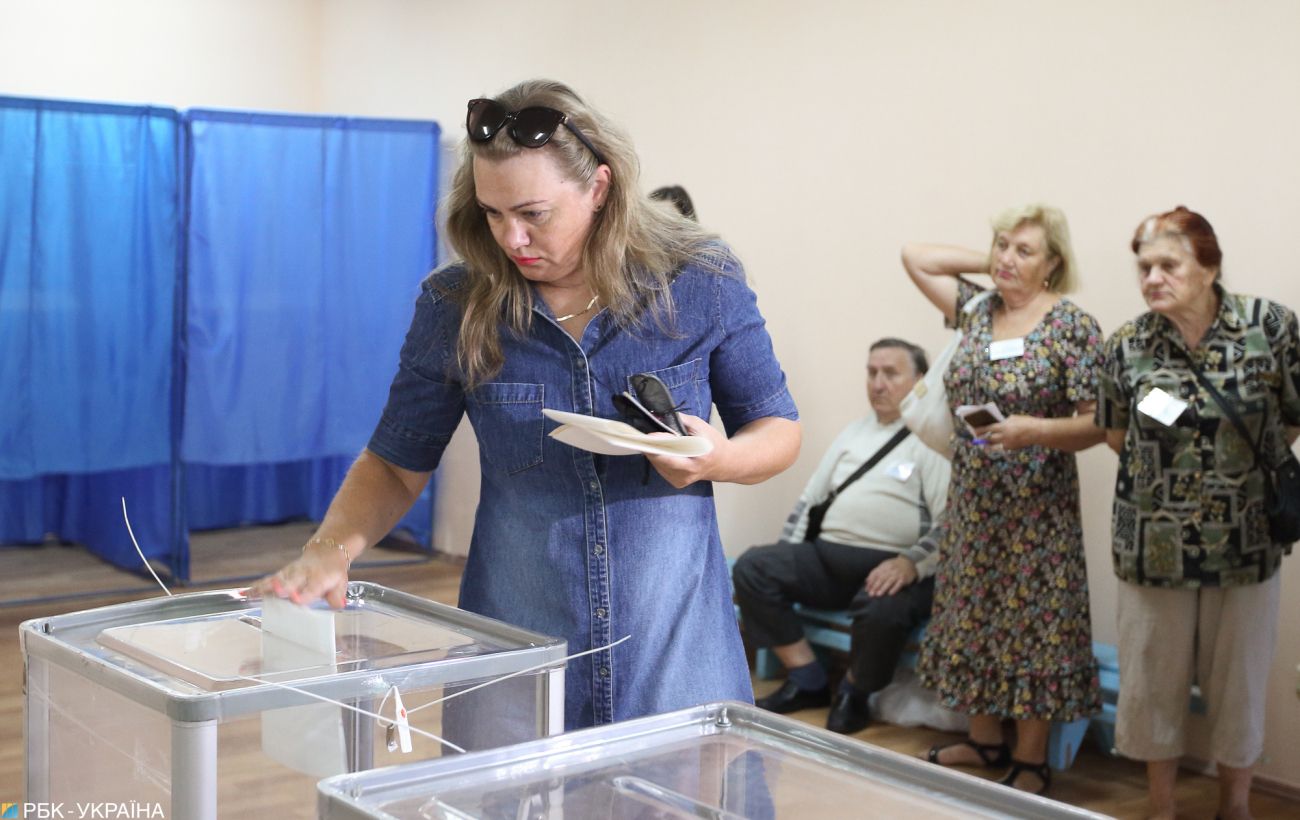
Voting in Ukraine (Photo: Vitalii Nosach/RBC-Ukraine)
Inside Ukraine, there are also many unresolved problems. How can voter lists be updated if millions of Ukrainians have left their homes? How to ensure the security of voting in frontline areas? How to guarantee free campaigning, media access, and observers in wartime conditions? How should polling stations operate during air raid alerts, and who will oversee the documentation during possible interruptions (since the Russians could launch their MiGs one after another from 8 a.m. to 8 p.m. on the day of voting)? How to ensure the participation of Ukrainian military personnel in the elections, a social group that unquestionably enjoys the highest level of trust in society? Finally, how can elections during wartime be reconciled with Ukrainian legislative norms?
For example, the artificial cancellation of martial law for a short period (RBC-Ukraine has heard about this option) threatens to completely collapse the system of state management, as martial law forms the basis for numerous regulatory acts, and its sudden cancellation would create a huge legal vacuum.
Likely, most of these problems could somehow be resolved if an answer was found to another question: should these elections be held during a war? RBC-Ukraine has already written about the position the United States, as Ukraine's main ally, takes on this issue. In short, they raise this issue but do not exert pressure on our government. Probably, they haven't yet.
Another aspect is purely political expediency. After all, it's not guaranteed that the next Verkhovna Rada will turn out to be better – more convenient and efficient. The current parliament has become a source of endless problems for Zelenskyy, from scandals involving deputies' trips abroad for vacation or apartments and cars whose origins remain questionable to the failure of essential legislative projects.
However, there are about 150-170 bayonets in the Rada that Zelenskyy can rely on. There might not be such support in the next parliament. Moreover, it's far from certain that the transformed "Zelenskyy Bloc," at least according to closed social surveys, will regain a parliamentary majority. This means sharing power and creating a coalition – an entirely new working format for President Zelenskyy.
"The ghost of Groysman is wandering there, who initially seemed to be on our side but then stopped taking our calls altogether," quips a source of RBC-Ukraine.
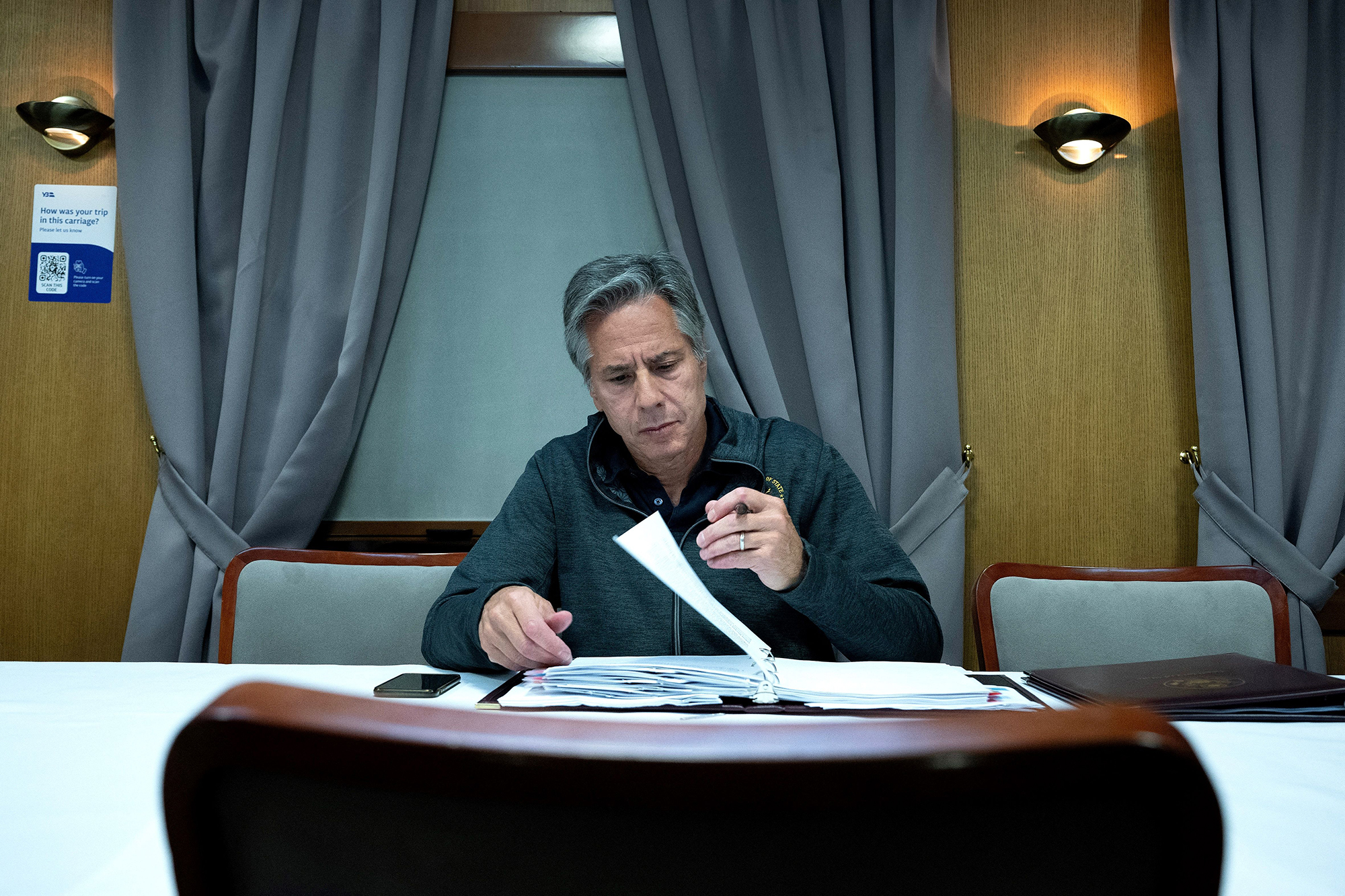
U.S. Secretary of State Antony Blinken on his way to Kyiv (Photo: Getty Images)
Among other things, in the current Ukrainian realities, elections are not just about letting off steam but rather about polarizing society. Just take a look at the political passions boiling on Ukrainian social media to imagine what they will turn into if fueled by the gasoline of elections.
"We'll barely recover from our own elections just to dive straight into the American ones. Will that benefit anyone?" another source rhetorically questions.
As of today, the question of holding elections next spring remains unresolved. Many assess the chances as 50/50 for now.
"An important point: if the decision to hold elections is made, it should be our scenario, not someone else's. The president is very sensitive to when someone tries to 'lead' him in a particular story and stops such attempts, taking control of the situation," says a source of RBC-Ukraine in the government.
According to his opinion, the perfect storm is one of the possibilities. Besides other factors, it is influenced by Russian shelling of energy facilities on the horizon, Russian information attacks on social media, the activities of their agents remaining in Ukraine, and the increased demands from the West for receiving funds. However, the source assures that Zelenskyy is well aware of all the risks and will maneuver accordingly.
"We've seen him flip the table many times, act and think non-linearly. In a way, if he sees that he's dealt a bad hand, he won't play it; he'll change the rules of the game instead," summarizes a source.



